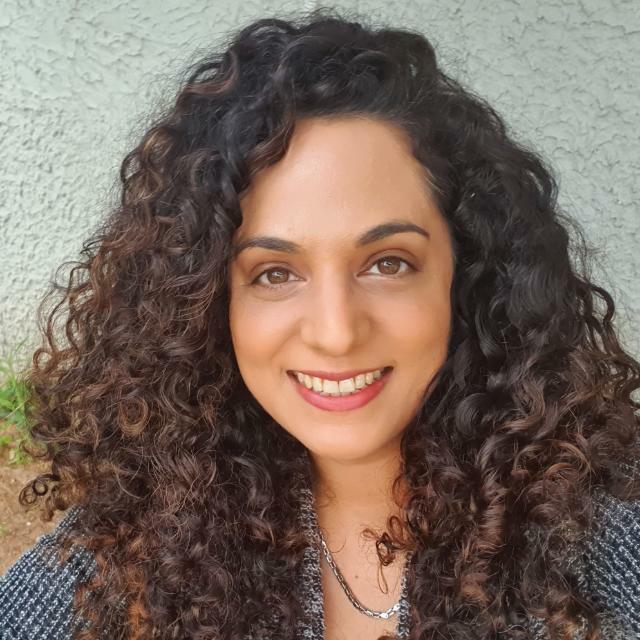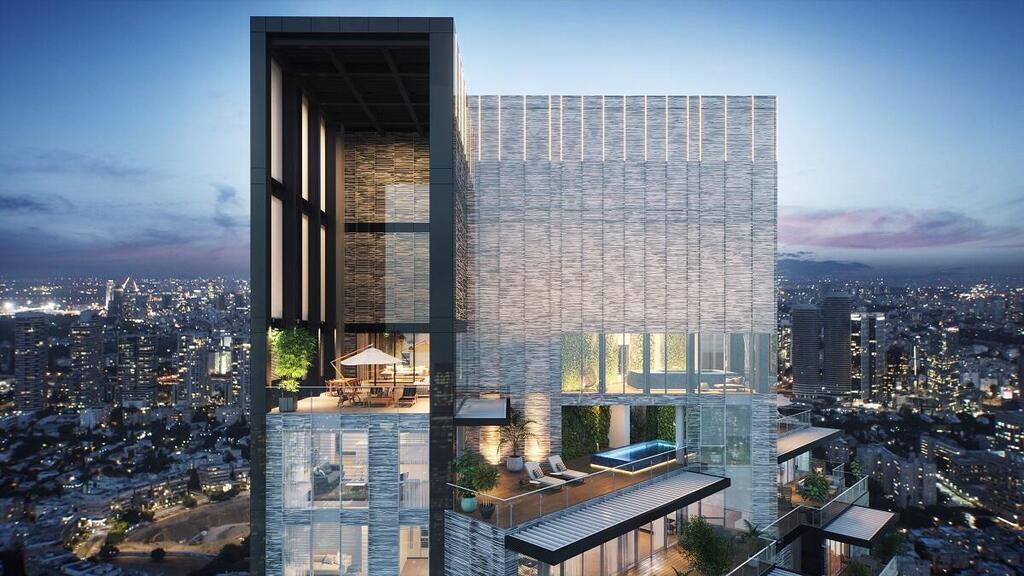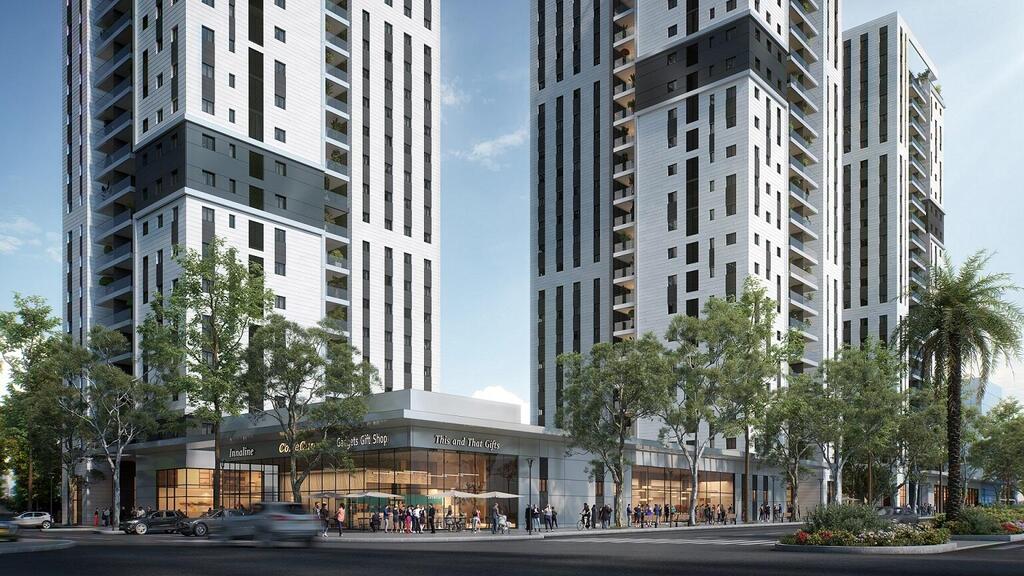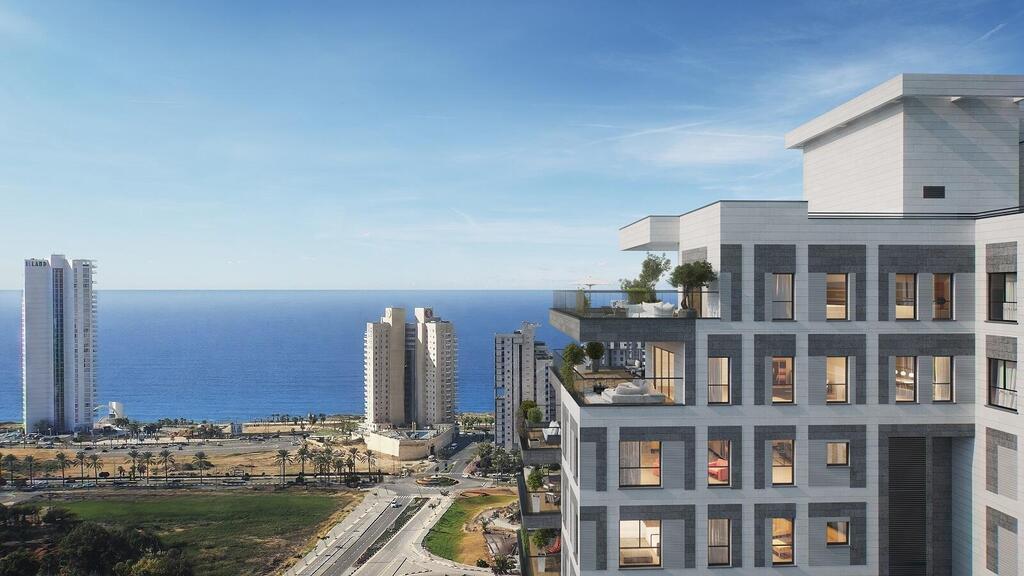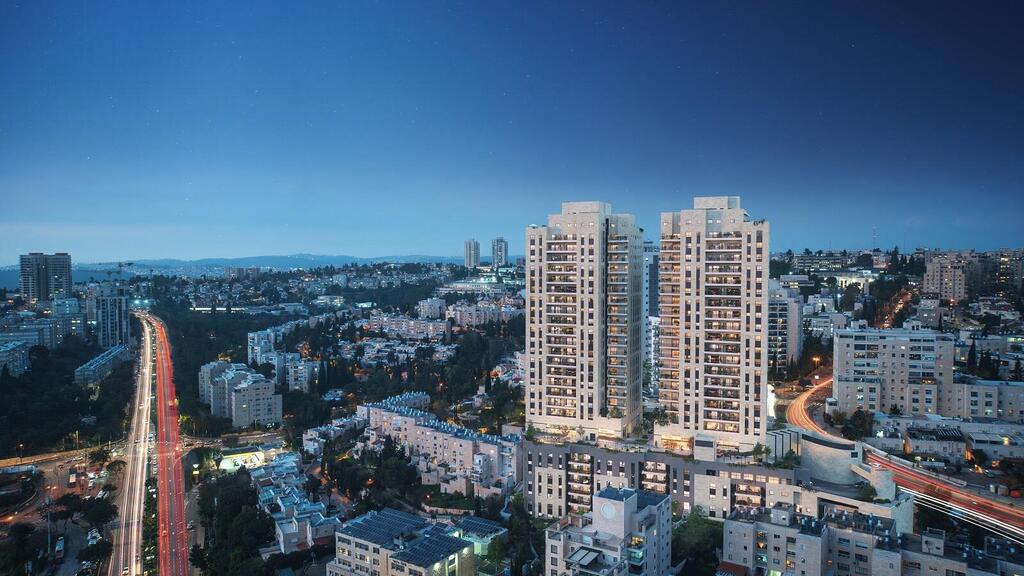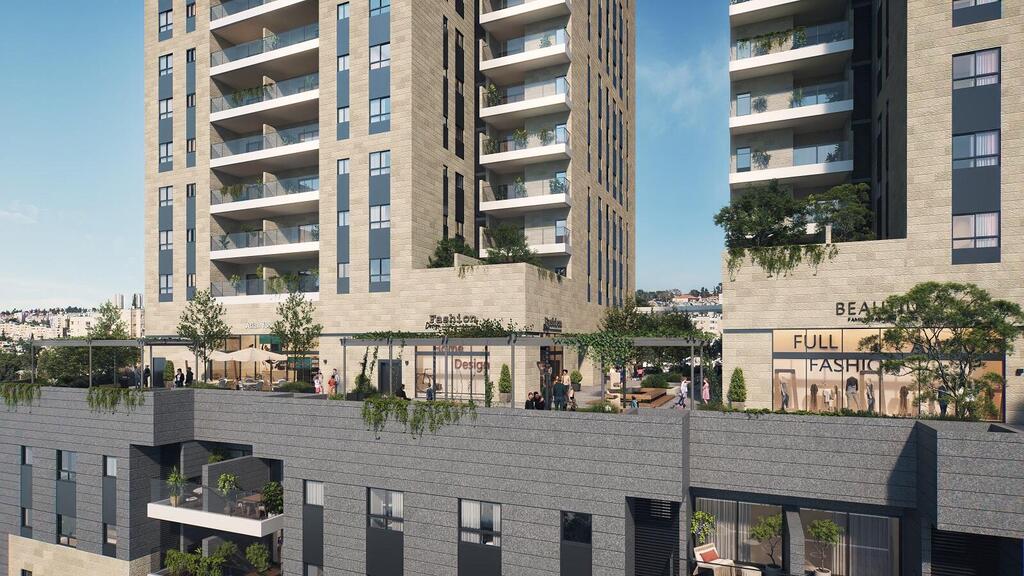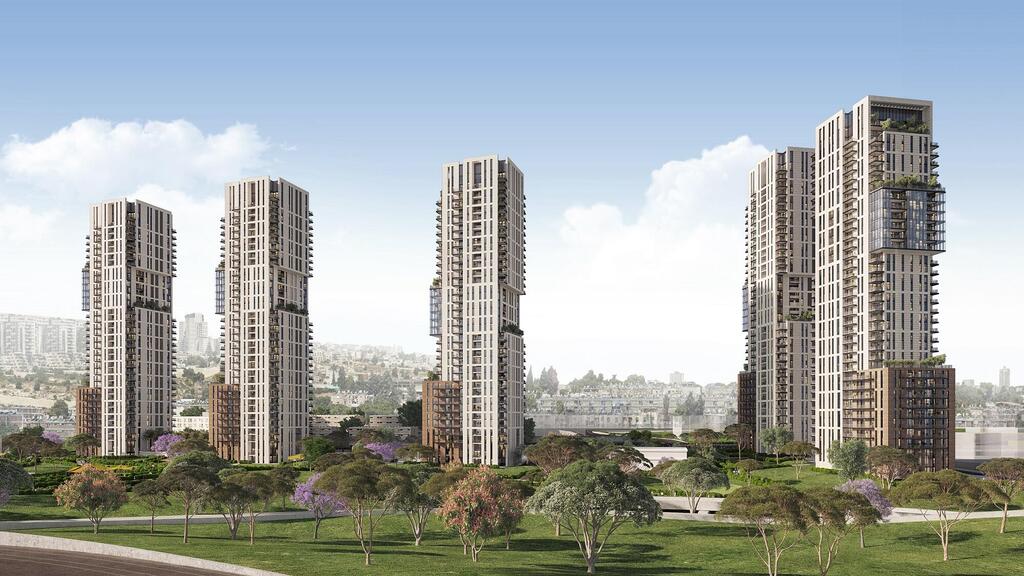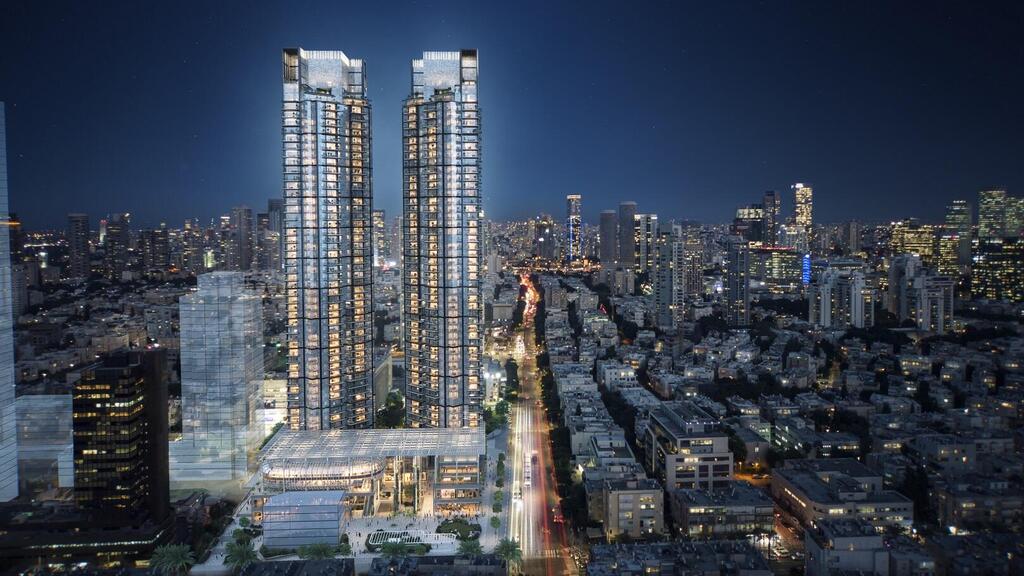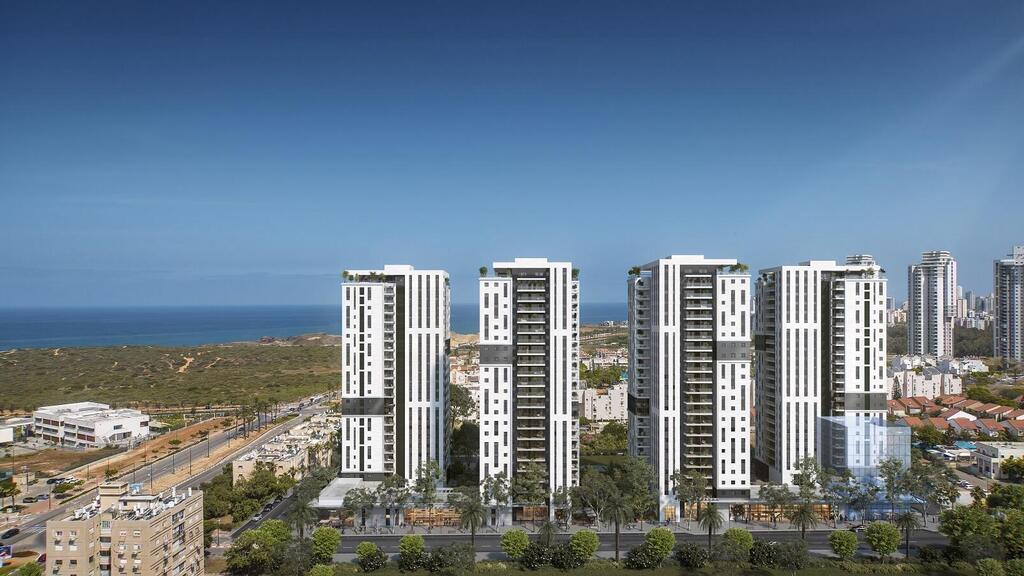Getting your Trinity Audio player ready...
In collaboration with Paragon Group
In recent years, veteran real estate companies have reported a steady rise in interest from overseas buyers—a trend that’s becoming increasingly common in both city centers and emerging residential projects.
The Israeli property market continues to attract Jewish buyers from the United States who are looking to turn a lifelong dream into reality by purchasing a home in Israel.
But before you sign anything, it's important to understand: buying an apartment in Israel is very different from what you may be used to. Specifications, legal procedures, taxes, and even project timelines can surprise anyone unfamiliar with the local system.
We spoke with Lior David, an international sales and marketing manager who has guided hundreds of diaspora buyers through the process, to learn how to do it right—starting from the very first step.
What to check before buying a new apartment from a developer
Before purchasing any new apartment, it’s essential to carry out a series of checks that can help you avoid serious complications later on. First and foremost, check the identity of the developer and contractor: is the contractor legally registered in Israel’s Contractors Registry? Does the developer have a proven track record of successful projects and satisfied buyers?
No less important is checking the land status and building permits. You should verify that the project has a valid, approved building permit. Make sure the land is officially registered in the Land Registry (Tabu) or leased from the Israel Land Authority, that there are no liens or unusual cautionary notes, and that the developer holds the necessary ownership rights.
 Lior David Photo: PR
Lior David Photo: PR“According to Israeli law, buyers are not allowed to pay more than 7% of the apartment’s price without receiving proper guarantees,” says David. “That’s why it’s critical to first see a valid building permit, approved zoning plan, detailed technical specifications, and a draft of the sales contract—before consulting a qualified real estate attorney.”
What your sales contract should include
The sales contract should clearly state the handover date and include a compensation mechanism in case of delays. Under Israel’s Sale Law, if the handover is delayed by more than 30 days, the buyer is entitled to monthly compensation for each additional month of delay.
Make sure the documents include either Sale Law guarantees or bank financing guarantees, depending on the project. Early-stage purchases come with more uncertainty—especially in terms of scheduling, sales progress, and planning approvals—so it's crucial to confirm that the developer is financially stable, backed by a reputable bank, and offering clear safeguards.
Additionally, it’s important to clarify in advance the terms surrounding modifications to the apartment. Is a change in flooring included in the price? Is there an official price list for adding electrical outlets or installing an air conditioner? “Buyers should always ask for a written price list of optional upgrades, to avoid misunderstandings later,” David advises.
He adds, “Buyers who don’t reside in Israel full-time should make sure the contract includes a power of attorney clause—allowing a representative, attorney, or family member to sign on their behalf, oversee the process, and even receive the apartment in their name.”
Early-stage vs. near-completion: Which is better?
Buying early in the process often comes with a discounted launch price, a wider selection of apartments (in terms of direction, floor, and size), and sometimes the option to request personalized modifications. In addition, if handover is expected a few years down the line, buyers have time to prepare for aliyah or relocation and can spread out the payment schedule.
On the flip side, early-stage buying carries more risks: delays in permits, changes to plans, and even the possibility that the project won’t be completed if enough presales aren’t secured. In such cases, the contract often includes a suspensive clause—canceling the deal if the developer fails to meet certain conditions.
“If the buyer wants to see exactly what they’re purchasing or needs the apartment within a short time frame, it’s better to choose a project that’s close to completion,” says David. “It reduces uncertainty and provides peace of mind.”
Understanding differences in apartment specifications
“When buying a property in Israel, it’s important to understand that the standard apartment specification is different from what American buyers are used to,” David explains.
“In Israel, new apartments are typically sold with a basic finish, including walls, flooring, electrical and plumbing systems, and sometimes a standard kitchen—with limited customization options.
"However, items such as closets, appliances, and even air conditioning are often not included in the base price and require additional payment or separate purchase. Any upgrades, like additional outlets or premium flooring, are billed separately and must be coordinated in advance with the developer.”
In contrast, in the U.S., buyers generally expect a “move-in ready” apartment with fewer required upgrades. David notes: “New apartments in the States often come with a fully equipped kitchen, built-in appliances, and even some basic furniture.”
These differences highlight the importance of thoroughly reviewing the technical specs and being aware of potential extra costs when buying property in Israel.
Buying a home in Israel while living abroad: How to stay informed and protected
“When you’re not on the ground to see the construction with your own eyes, it becomes essential to have regular updates, strong legal support, and a trusted local representative,” says David.
Today, some developers offer dedicated client portals with photos, documents, and ongoing updates—designed specifically for overseas buyers.
If you’re purchasing property from abroad, it’s important to work with a real estate attorney who specializes in transactions for non-residents. They should understand Israeli banking requirements, support digital signatures, provide translated documents, and explain the process in clear, accessible language.
It’s also wise to appoint someone local—like a realtor, attorney, or building inspector—who can visit the site regularly to monitor progress and identify issues early. “That level of oversight offers real peace of mind when you can’t be there in person,” David notes.
In addition, make sure your contract allows for a notarized power of attorney, that payments are transferred through a secure trust account, and that the developer is contractually obligated to provide ongoing updates, including photos from the site.
What to evaluate beyond the apartment itself
It’s not only the apartment that matters—it’s also the living environment. Is there a permanent property management company in place? What services does it provide? What are the monthly maintenance fees? These questions are especially important for buyers who visit Israel only occasionally.
Other aspects to examine include whether the parking space is deeded (tabu) or general; whether the apartment comes with a private storage room; and whether the building offers full accessibility, such as elevators, step-free entrances, and accessible bathrooms.
It’s also worth checking how close the project is to synagogues, community centers, public transportation, and green spaces. All of these factors can significantly impact the property's long-term value. “A well-located project is simply worth more—both personally and as an investment,” says David.
Planning your finances: Payment schedules and extra costs
Buying from a developer in Israel often comes with a long-term payment plan—a major advantage for overseas buyers. “Typically, you pay 20% upfront and the remaining 80% within three to five years. This gives buyers time to plan and offers financial flexibility,” David explains.
Still, it’s important to plan for additional costs, including construction index-linked payments, purchase tax, legal fees, and potential upgrades. “We recommend setting aside 5–10% beyond your original budget, just in case. That financial buffer helps avoid unpleasant surprises and makes the process smoother,” he adds.
Where most international buyers choose to live
“The most in-demand cities for foreign buyers are Jerusalem and Tel Aviv,” says David. “These areas are constantly growing, offering a high quality of life, supportive communities, and strong long-term investment potential. Coastal cities like Netanya are also popular.”
Projects in up-and-coming neighborhoods can offer even more value. Buyers should check whether the area is undergoing urban renewal, infrastructure upgrades, or approved zoning changes—all of which can increase property value over time.
“Beyond the city itself, neighborhoods with English-speaking communities, proximity to synagogues, and good schools tend to attract more diaspora buyers,” David explains. “Easy access to Ben Gurion Airport is another key factor, especially for those who visit seasonally. A location with good public transport means you may not need a car—which is a major consideration for many.”
Community matters: Why American Jews rarely buy alone
For many diaspora buyers—especially from North America—purchasing an apartment in Israel isn’t just a real estate decision. It’s first and foremost a choice of community.
“An American buyer will usually avoid purchasing an apartment in a project where there’s no existing English-speaking community,” says David. “Sometimes it’s a family joining friends, and sometimes it’s a rabbi leading a group of dozens looking to live close together. The sense of belonging, of a familiar synagogue and suitable educational institutions, is a critical factor. The more elements that support a religious and communal lifestyle, the more attractive the project becomes.”
This sense of community is also a catalyst for building new ones: buyers often choose apartments in the same building or complex to live near each other, stay within a familiar environment, and create a vibrant, shared community.
Real estate companies that operate transparently and have a proven track record with overseas clients don’t just sell apartments—they help create genuine new communities.
At the same time, there are also mixed motivations: parents buying homes for their children studying in Israel, families looking for a vacation apartment, or even buyers seeking a safe haven in case of emergency. “More and more buyers today talk about wanting a place they can come to if needed,” David notes. “And in light of rising antisemitism around the world, that’s become a major consideration.”
Jerusalem: Classic neighborhoods, modern living
Demand for housing in Jerusalem among diaspora Jews remains high—not only because of the city's symbolic importance, but also thanks to the quiet, upgraded neighborhoods that have flourished in recent years. Areas like Baka, Ramot Sharett, and Old Katamon continue to attract buyers seeking a calm, community-oriented living environment with easy access to the city center.
One standout project is SOHO Jerusalem, an innovative new complex in Katamon featuring five 34-story residential towers, a retail and leisure promenade, cultural centers, a large central park, and a range of community services. The apartments—ranging from 2 to 5 rooms, including penthouses—were designed by Yashar Architects with a high-end spec, fitness facilities, a residents’ lounge, a synagogue, and a stylish lobby.
Another notable development, Savyoney Ramat Sharett Premium, is being built on one of the last land reserves in the area. It includes two 19-story luxury towers, a 7-story building, and a shopping strip. The complex offers open views, a co-working space, gym, dedicated sukkah areas, and Shabbat elevators—features that reflect a deep understanding of the specific needs of diaspora buyers.
Tel Aviv: Living in the beating heart of the city
The Duo Tel Aviv project is located at the intersection of Arlozorov and Ibn Gabirol streets—one of the city’s most central and accessible areas. The two towers are designed to integrate residential living with retail and leisure spaces, right in the vibrant core of Tel Aviv. The location is just a short walk from the beach, Yarkon Park, cultural institutions, cafés, and shopping centers.
Planned by Yashar Architects and designed by Orly Shrem Interior Design, the complex includes 2–5 room apartments and penthouses. The residences feature high ceilings, spacious balconies, and an upscale international-level spec. This is one of Tel Aviv’s most iconic developments, offering diaspora buyers a rare opportunity to experience the pulse of the city—without compromising on comfort or quality of life.
Netanya: Urban life alongside nature
Savyoney Hashmura in Netanya is a new residential project located near the sought-after Ir Yamim neighborhood. The area offers open views of a lush nature reserve, along with well-planned urban design that includes a commercial boulevard, education campus, sports centers, city parks, and easy access to the beach.
The project features four 22-story towers with 3–5 room apartments and penthouses. It’s an ideal choice for buyers looking to combine a peaceful, high-quality environment with a vibrant community atmosphere and excellent access to shopping and transportation hubs. With its proximity to the sea, dynamic neighborhood growth, and community-oriented feel, the project is also highly attractive from an investment perspective.
In collaboration with Paragon Group


